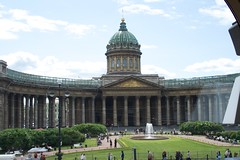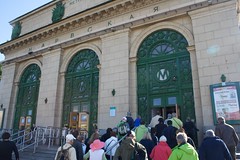Three readings worth your time this week.
The Trans-Siberian Railway, tracks that covers seven time zones and 5,772 miles between Moscow and Vladivostok, is the stuff of travel legend. This package from the UK Telegraph includes a short history of how it was built and a first-person narrative from a reporter and his family making the passage, including some great photos. (about 16 minutes)
As teachers we’re told that we must provide students with specific, clearly defined expectations for all of their work. But what if doing that inhibits creative thinking? That’s an interesting, counter-intuitive idea explored in a new book about creating a culture of thinking in schools. Read this excerpt and see if you think the author makes his case. (about 8 minutes)
Earlier this week, Bob Dylan was awarded the 2016 Nobel Prize for Literature and it was, to say the least, a controversial selection. But it’s hard to argue with the selection committee who say that Dylan “created new poetic expressions within the great American song tradition.” This New Yorker piece is one of the better celebration of their choice. (about 3 minutes)
Two videos to watch when you have a few minutes.
This is an interesting confessional from someone turned off to math by his middle school teacher, someone who is now an English teacher himself. How many current educators, math or otherwise, have a classroom management style to the teacher who convinced him to quit math? (4:19)
In this TED Talk, UK comedian James Veitch relates a story about his exchange with a faceless email server after receiving the kind of unsolicited messages we all get and can’t seem to unsubscribe from. I love his observation, “The internet gave us access to everything. But it also gave everything access to us.” (7:40)
One audio track for your commute.
You probably read about the investigation into Wells Fargo where the bank paid a relatively small fine, the penalty for employees who opened tens of thousands of accounts without customer permission, just to meet sales quotas. Planet Money put a human face on the story and spoke to two of those employees, one of whom called the company ethics line multiple times to report the violations. Listen and wonder who was on the other end of that ethics line. (18:32)

